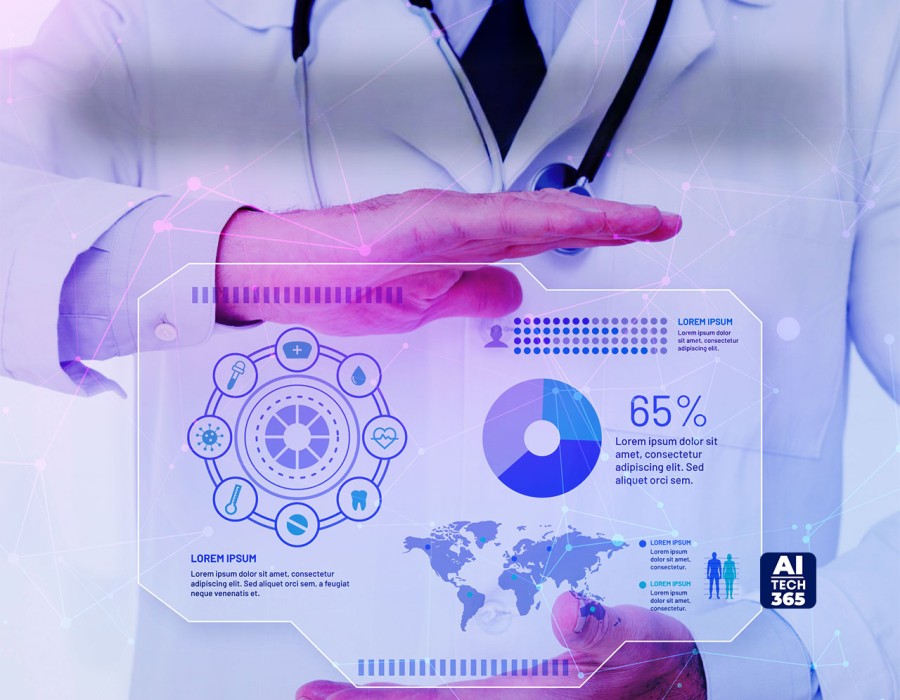In recent years, the healthcare sector has witnessed a rapid shift, with data analytics leading the way in enhancing patient care. Predictive analytics, a branch of data science, utilizes historical and real-time healthcare data to foresee future health trends and events. According to industry projections, the predictive analytics market is set to reach $41.52 billion by 2028, marking its growing influence in healthcare.
This guide provides a deep dive into predictive analytics in healthcare, examining its core functions, significant applications, and the benefits and challenges it brings. By understanding these insights, healthcare professionals can leverage predictive analytics to drive a more efficient and patient-centered approach to care.
What Is Predictive Analytics in Healthcare?
Predictive analytics leverages advanced algorithms to analyze vast datasets such as:
- Electronic Health Records (EHRs)
- Insurance claims data
- Lifestyle indicators
- Genetic profiles
By uncovering hidden patterns within this data, healthcare providers can:
- Anticipate Future Health Risks: Predict trends such as disease outbreaks or readmission risks, enabling proactive care.
- Pinpoint High-Risk Patients: Early identification allows for timely interventions, reducing health risks.
- Optimize Resources: Predictive insights help allocate staff and equipment effectively, improving resource efficiency.
Key Applications of Predictive Analytics in Healthcare
Predictive analytics offers versatile solutions that span various healthcare areas. Below are some key applications:
- Disease Risk Assessment: Identify patients likely to develop chronic illnesses (e.g., diabetes, heart disease) and implement early preventive measures.
- Minimizing Readmissions: Predict patient readmission risks post-discharge, enabling targeted care to improve recovery outcomes.
- Personalized Treatment Planning: Customize treatment based on individual health data, enhancing care precision.
- Resource Forecasting: Predict patient inflow to optimize staffing and equipment distribution.
- Fraud Detection: Identify suspicious claim patterns to reduce healthcare costs and enhance integrity.
- Public Health Management: Track and respond to potential outbreaks, ensuring timely health interventions.
Enhancing Patient Outcomes with Predictive Analytics
Predictive analytics supports better patient outcomes by providing actionable insights for early intervention and treatment.
- Early Detection of Chronic Diseases: Models can identify risks for conditions such as diabetes, cancer, or cardiovascular diseases, enabling timely lifestyle or medication interventions.
- Customized Treatment Plans: By analyzing patient history, lifestyle, and genetics, predictive analytics aids in creating targeted, effective treatment regimens.
- Reduced Complication and Readmission Risks: Predictive analytics helps pinpoint post-surgery risks, allowing preventive steps to be taken, which reduces complications and readmissions.
Predictive Analytics in Action
Predictive analytics reshapes healthcare through proactive, data-driven decisions, exemplified by the following cases:
- Reducing Readmissions: High readmission rates, often seen with chronic conditions, impact costs and patient experience. Predictive analytics identifies patients at risk, enabling post-care plans tailored to their specific needs.
- Population Health Management: Integrating AI with predictive models allows providers to monitor health patterns, enhancing population health initiatives.
Future Trends in Predictive Analytics
The future of predictive analytics holds promise for a more efficient, proactive healthcare system:
- AI Integration: AI enhances predictive accuracy, refining patient risk profiles and enabling personalized care.
- Wearable Tech Integration: Devices like smartwatches provide real-time data, enriching predictive models with up-to-date patient information.
- Population Health Focus: A shift towards preventive, community-focused healthcare is enabled by predictive analytics, improving public health outcomes.
Conclusion
Predictive analytics empowers healthcare to shift from reactive to proactive care, leveraging data for earlier detection, customized treatments, and optimized resource use. As predictive models evolve, they hold the potential to reshape healthcare, improving patient outcomes and paving the way for a data-driven, healthier future.





Comments